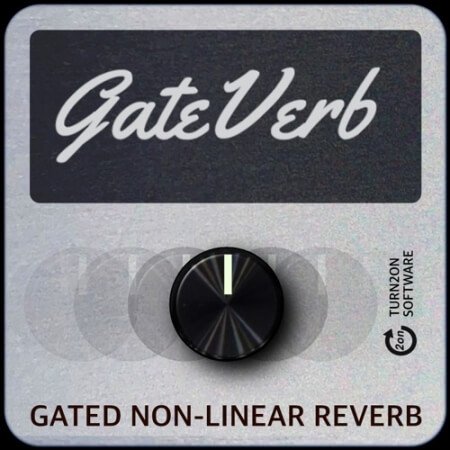Windows
Reason RE Turn2on GateVerb v1.0.0 [WiN]

Team DECiBEL | 29 March 2022 | 19.4 MB
The most common classical digital and analog reverb effects are linear. A Non-linear reverb gives an extra burst of the energy to each hit and extends the feel of the rhythm and expressive dynamics in a perfomance.
This is a really powerful effect which creates something akin to envelope shaped reverberation.
When the verb decay is set to a small value, the gate closes and cuts off the tail using compression. Gated reverbs can punch up simple drum loops into energetic wave rhythms. Sometimes the incoming signal is even mutated into absolutely new sounds.
Non-linear reverb can also be used to great effect on guitar. Gate reverberation has been used by such musicians as Jimi Hendrix, Madonna and Phill Collins to name just a few. The effect can be heard in many popular tracks from the 80s, when gated reverb was used extensively by many producers on instruments and percussion. Gater reverb is an essential element of the "Big Snare Sound".
Non-linear reverberation can also be heard in many popular modern tracks. Listen to more experimental usage of it on beats and leads on The Chemical Brothers album "Dig Your Own Hole". For example, the drum-drones at the end of "Where Do I Began", leads from "Block Rocking Beats" and many more were created using this effect.
Make Gated, or non-linear, reverb effect a special part of your own creative sound.
The Time parameter is used to set the length of the reverberation tail before a hard-gated cutoff and compression are applied.
High Cut and Low Cut parameters help to control the frequency of the processed signal.
Try GATEVERB now on your drums, rhythms, loops, powerful leads and guitars.
Remember, whereas linear reverberation is more about natural decay, non-linear reverberation, at first listen can seem unusable. Don't give up though. Experiment and you will find out why musicians from the past and present find it a fantastic and interesting effect."
Features:
- Powerful fx for the sound of 80s hits
- Mutate drums, leads, loops to experimental sounds
- Gated verb is a part of legendary guitar sounds
home page
This is a really powerful effect which creates something akin to envelope shaped reverberation.
When the verb decay is set to a small value, the gate closes and cuts off the tail using compression. Gated reverbs can punch up simple drum loops into energetic wave rhythms. Sometimes the incoming signal is even mutated into absolutely new sounds.
Non-linear reverb can also be used to great effect on guitar. Gate reverberation has been used by such musicians as Jimi Hendrix, Madonna and Phill Collins to name just a few. The effect can be heard in many popular tracks from the 80s, when gated reverb was used extensively by many producers on instruments and percussion. Gater reverb is an essential element of the "Big Snare Sound".
Non-linear reverberation can also be heard in many popular modern tracks. Listen to more experimental usage of it on beats and leads on The Chemical Brothers album "Dig Your Own Hole". For example, the drum-drones at the end of "Where Do I Began", leads from "Block Rocking Beats" and many more were created using this effect.
Make Gated, or non-linear, reverb effect a special part of your own creative sound.
The Time parameter is used to set the length of the reverberation tail before a hard-gated cutoff and compression are applied.
High Cut and Low Cut parameters help to control the frequency of the processed signal.
Try GATEVERB now on your drums, rhythms, loops, powerful leads and guitars.
Remember, whereas linear reverberation is more about natural decay, non-linear reverberation, at first listen can seem unusable. Don't give up though. Experiment and you will find out why musicians from the past and present find it a fantastic and interesting effect."
Features:
- Powerful fx for the sound of 80s hits
- Mutate drums, leads, loops to experimental sounds
- Gated verb is a part of legendary guitar sounds
home page
Only registered users can see Download Links. Please or login.


No comments yet